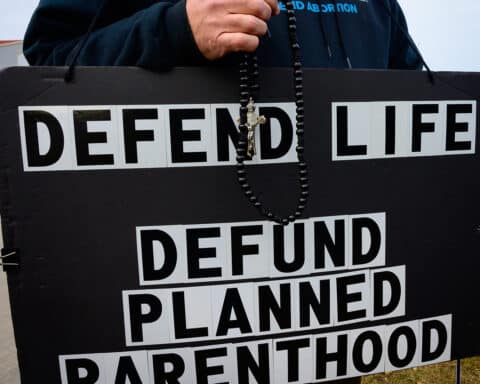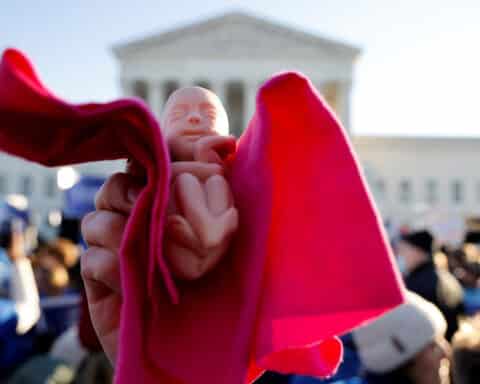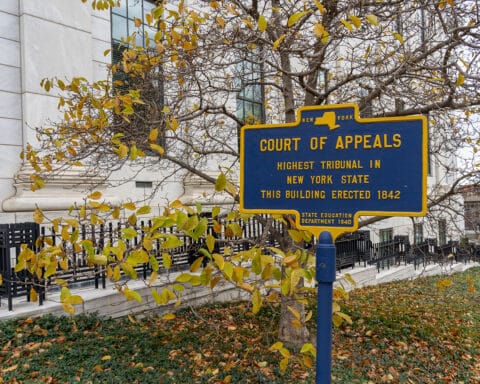The College Student Right to Access Act (Senate Bill 24) requires state universities in California to provide students “abortion by medication techniques” such as the abortion pill RU-486. Democratic California Gov. Gavin Newsome has promised to sign the legislation into law. The rationale for the bill is that abortion is essential reproductive health care, and that the state has an obligation to help students exercise their constitutional rights to get an abortion.
In the words of SB 24, “Because abortion by medication techniques is both a recognized treatment for the medical condition of pregnancy and a health service every pregnant person in the state has the legal right to choose, it is the intent of the Legislature that public university student health centers make abortion by medication techniques as accessible and cost effective for students as possible.”
Problems
The problems with SB 24 are manifold. To begin with, pregnancy is not a disease, but rather a manifestation of health. In people of reproductive age, it is infertility and sterility that indicate lack of health, not pregnancy. For this reason, doctors often help women to get pregnant and to maintain a pregnancy when miscarriage is threatening.
Moreover, it is misnomer to declare that abortion is health care, let alone reproductive health care. This is made clear when we consider what health is. Germain Grisez said, “Health is the aspect of well-being that is common to human beings and other animals: functioning well as integrated, psychosomatic wholes.”
Abortion does not aim at health. Abortion always results in a maximum lack of health for one human being (the prental human being who dies) and risks the mental and physical health of the person who gets the abortion. Even harder to believe is that abortion aims at reproductive health, since the point of an abortion is to destroy a son or daughter resulting from a successful act of reproduction.
The state and abortion
Does the state have an obligation to make abortions “as accessible and cost effective for students as possible”? If so, abortion is unlike all our rights, including those rights actually found in text of the U.S. Constitution, rather than invented by the majority opinion of Roe v. Wade in 1973 from the penumbra of emanations (that’s lawyer speak for “we just made it up.”) We have a constitutional right to keep and bear arms, but no one claims the state of California should supply each student with a gun. We have a constitutional right to the free exercise of religion, but no one supposes that the state should pay for Muslim students to travel to Mecca to worship or for Catholic students to walk the El Camino de Santiago for pilgrimage. We have a right to freedom of speech, but the state has no duty to force UCLA to publish any and all the books written by students. We have a right to peaceably assemble, but the state has no duty to pay for students to go to the political rally of their choice.
The prenatal human being
And this brings up another problem with SB 24. Defenders of abortion often declare that “abortion is a private matter between a woman and her doctor.” Slogans like that conveniently ignore an innocent third party involved in every abortion, the prenatal human being. But suppose we ignore the child in utero and accept the slogan at face value. If abortion really is a private matter, then why should public money pay for it? If abortion is the free choice of an individual, then why should the state force taxpayers to foot the bill? If someone wants some other elective medical intervention, such as a face-lift or a nose job, everyone agrees that person who chooses the procedure is the person to pay for the procedure.
Elective abortions are optional medical interventions, to be freely chosen or not freely chosen. There is no consistency is claiming, “my body, my choice,” then turning around and saying, “your tax money, your public institutions” should be forced to facilitate this private decision. The emphasis on abortion as a private and personal choice conflicts with demands for institutional and public support. Abortion slogans are an instance of “a rhetorical Houdini breaking free from the shackles of consistency,” as Father George Rutler put it.
Finally, as Sacramento Bishop Jaime Soto and Sacramento State University student Jessica Manzo pointed out, “This measure would not be a wise investment. The Department of Finance points this out in its statement of opposition, citing the diversion of finances from other more worthwhile investments … .” Let’s help students buy books, not procure abortions.





